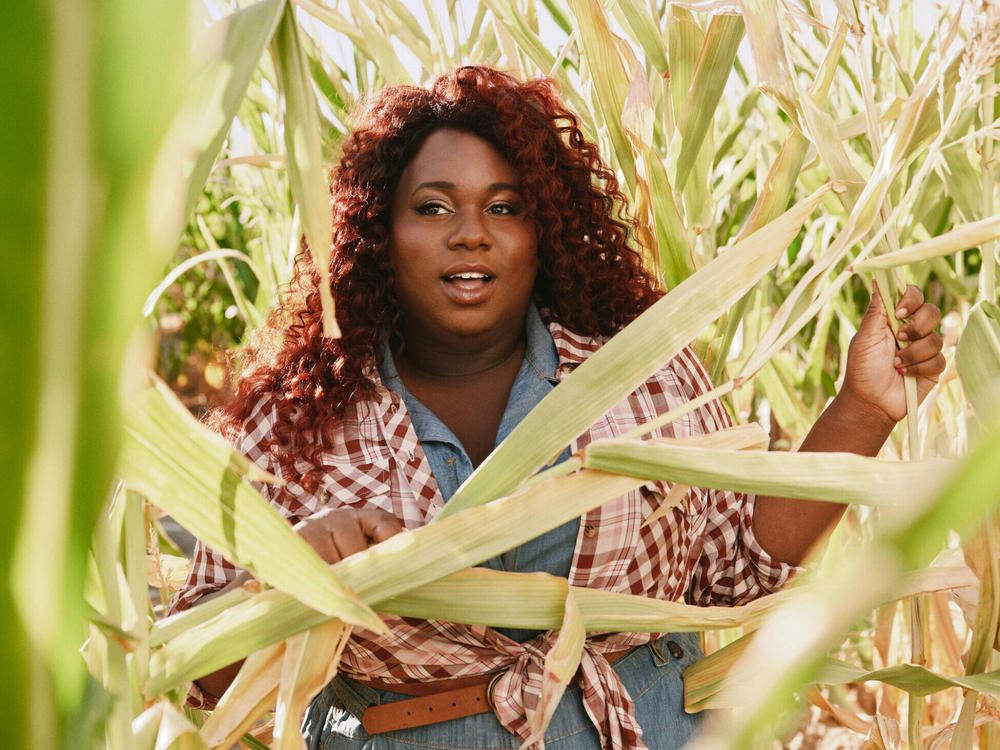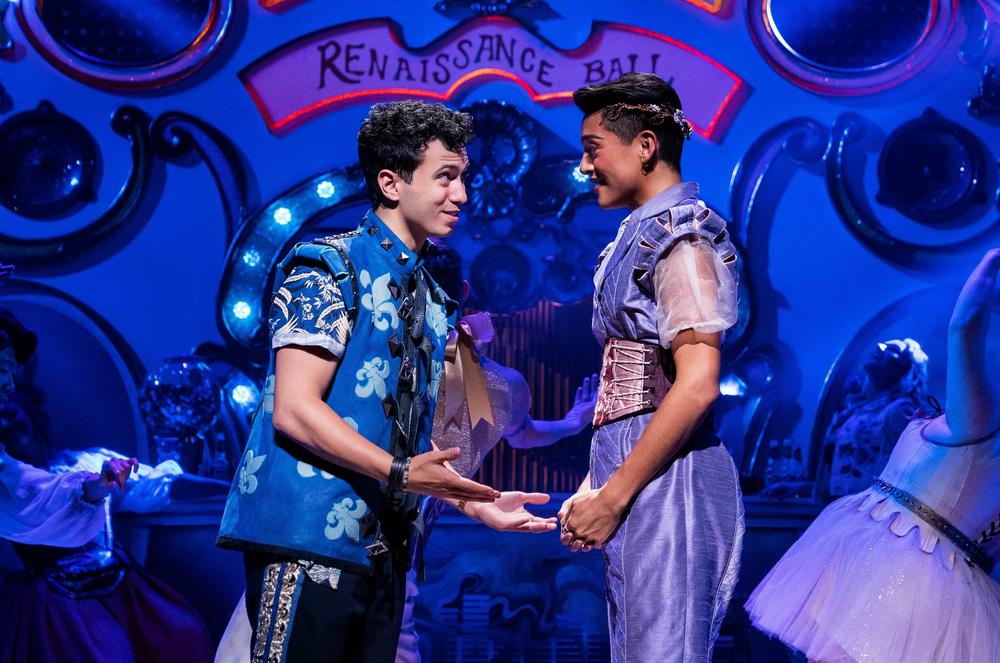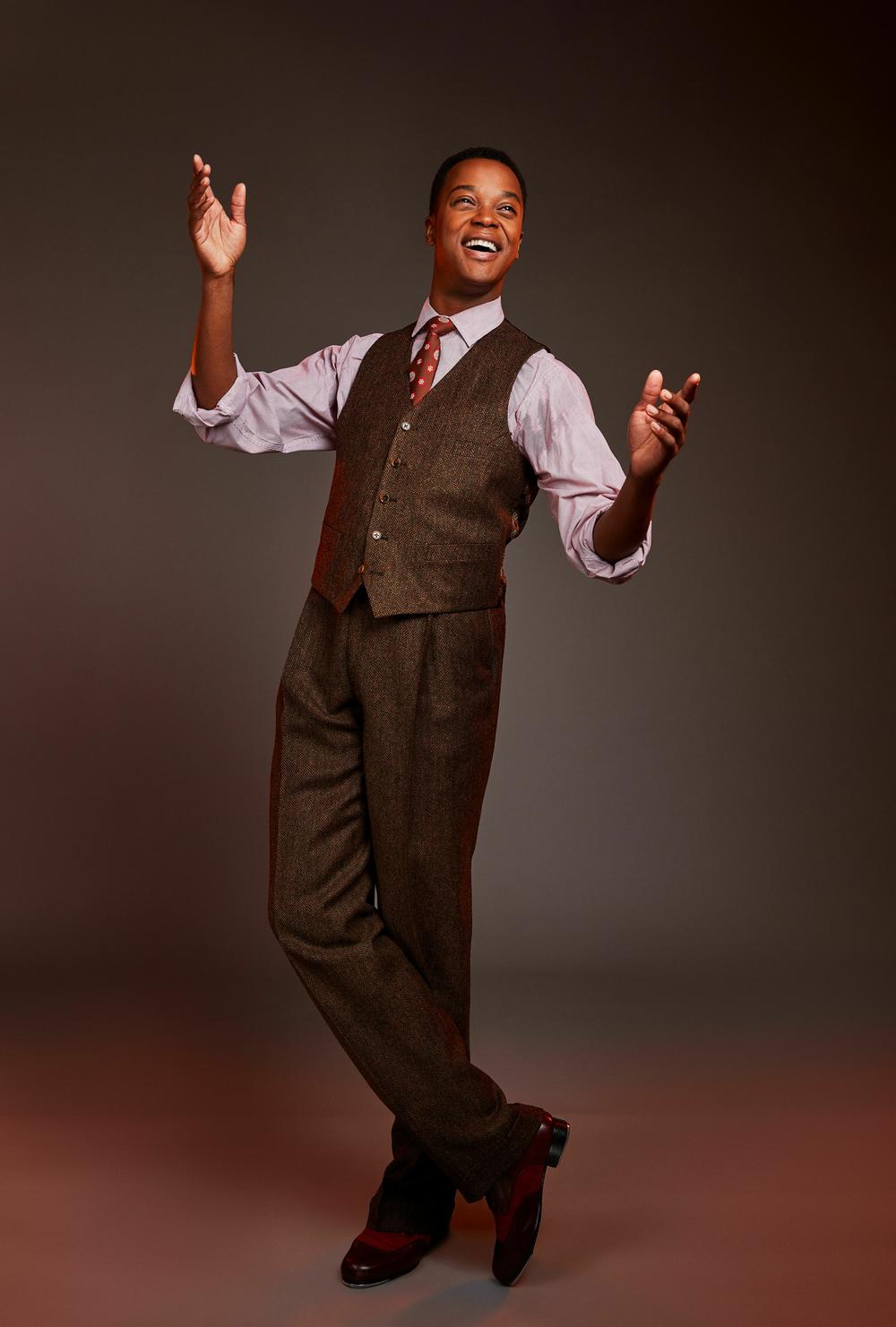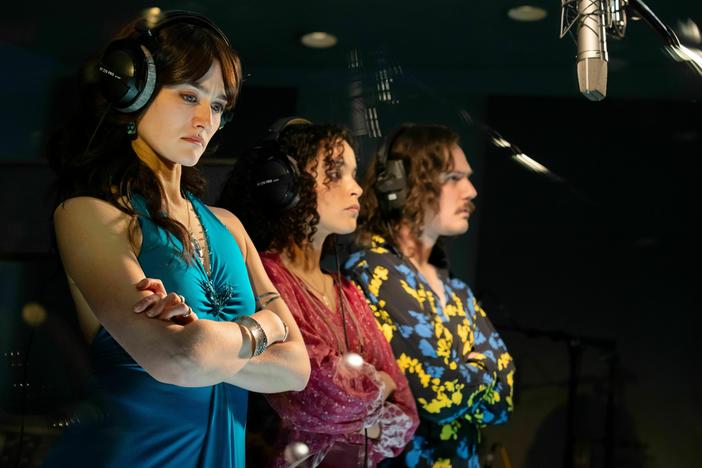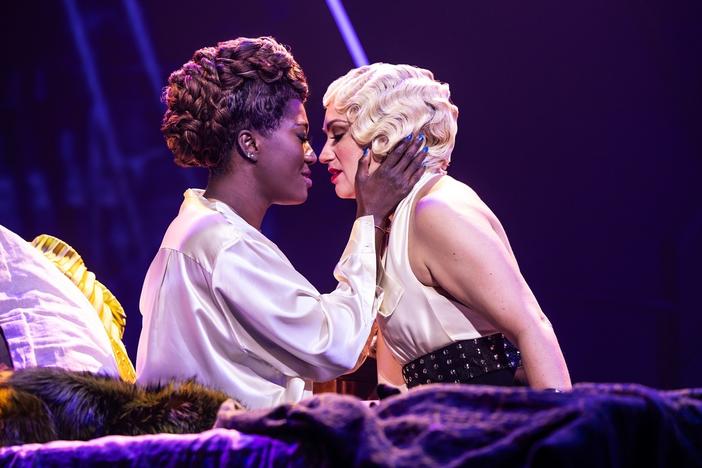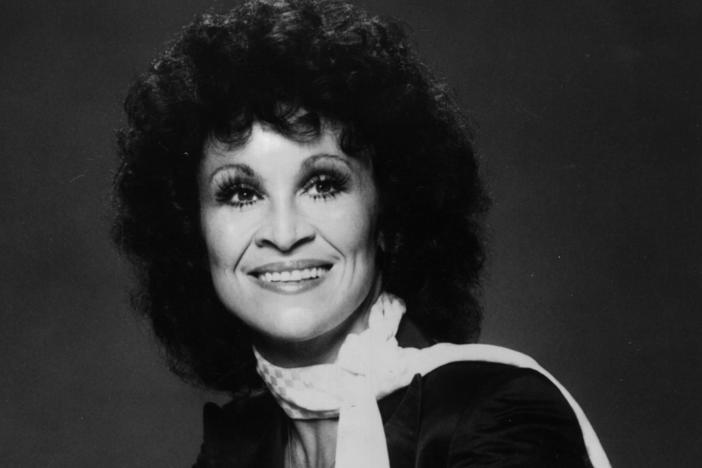Football Fridays Game of the week | Playoffs Rd 2- Lowndes at Buford - At 7:30 P.M.
Section Branding
Header Content
Tony Awards have gendered actor categories — where do non-binary people fit?
Primary Content
Most theater, film and television awards feature gendered performance categories, but in recent years, some theater ceremonies have done away with male/female distinctions.
Not the Tony Awards, Broadway's highest honors.
But this June, for the first time, there's a chance that a couple of non-binary performers will take home statues.
"We don't gender other people's professions," said Alex Newell, who plays a female character, Lulu, in the new musical Shucked. "You say: I'm going to my doctor, I'm going to my dentist, and I need to hire a plumber."
Newell, who is a self-described non-binary, non-gender-conforming actor, is nominated for best featured actor in a musical, the category in which they chose to be recognized. Why actor and not actress? "The word itself is not gendered," they said. "That is my profession. That is my vocation. I am an actor."
The issue of gendered acting categories came to the fore in February, when Justin David Sullivan, who identifies as trans non-binary, made their Broadway debut as May in the musical & Juliet, but declined to be considered for a Tony.
"I am a non-binary human and I am playing a non-binary principal role in a Broadway musical, which we really don't see a lot of that," said Sullivan. "So, I think for them to ask whether I would rather be seen more as, you know, male or female, I just felt like I couldn't rightfully make that call."
Sullivan made a public statement saying: "I hope that award shows across the industry will expand their reach to be able to honor and award people of all gender identities," which created a lot of chatter. Sullivan said they weren't prepared for that.
"I am just, you know, one human at the end of the day and when something like that comes out, people can take your words and twist it however they want," they said. But Sullivan said that the Broadway community and other non-binary performers showed them "a cast ocean of support and love and care."
Many theater awards around the country have chosen to make performance awards non-gendered, including Washington's Helen Hayes Awards, Chicago's Jeff Awards, and New York's Drama Desk, which recognizes both Broadway and Off-Broadway theater.
David Barbour, co-president of the Drama Desk Awards, said for years they had non-gendered performance categories, until they realized more men than women were taking home honors. At that point, they switched to gendered categories — but this year, they switched back.
"It really became evident to us that there were a number of performances by non-binary performers who were very likely going to be in the mix when the nominations came out," said Barbour. "And it's not our business to be telling actors who they are. We're not in the business of defining them."
Yet the Tony Awards, which declined to comment on this story, do not yet seem to agree. That doesn't bother everyone equally.
"Change is incremental," said J. Harrison Ghee, who stars in Some Like It Hot. "It's not going to necessarily happen immediately for everyone."
Ghee, who's up for a Tony as best actor in a musical based on the classic film, plays a male bass player named Jerry, who dresses as a woman named Daphne in order to join an all-women band to hide from the mob. That's when they discover ... they really like it.
"It's fun to have the opportunity to show the humanity of Jerry/Daphne," said Ghee. "The fullness of an experience. And just removing the labels, the limits, the filters that we're always placed on it."
Justin David Sullivan said it's a sign that things are beginning to change. "We're starting to see a shift in what kind of stories are being told and making sure that, you know, these characters exist, because, just like in real life, we as people exist."
Copyright 2023 NPR. To see more, visit https://www.npr.org.
Bottom Content

